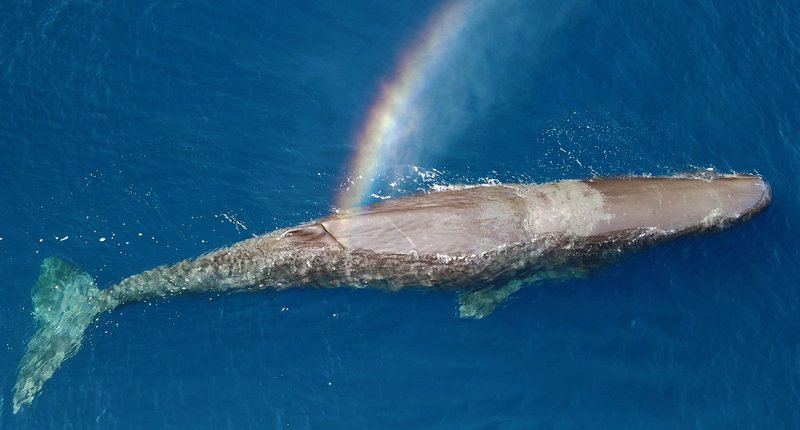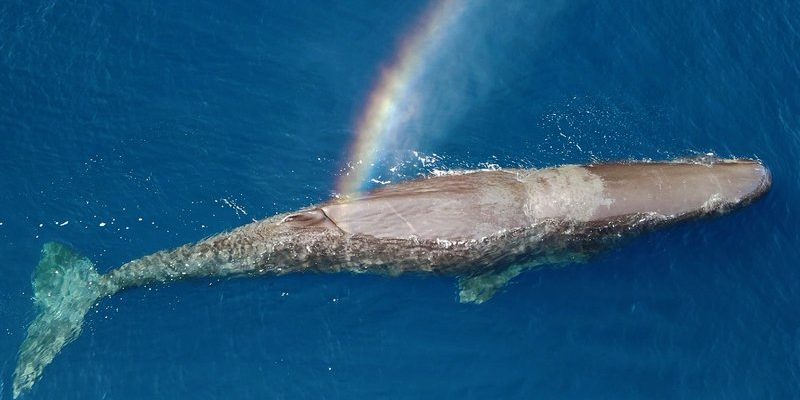
You might be wondering why it’s important to know about these threats. Well, understanding the challenges sperm whales face helps us appreciate their role in the marine ecosystem and highlights the need for conservation efforts. So, grab a cup of coffee, sit back, and let’s talk about what’s putting these remarkable creatures at risk.
1. Ship Strikes
One of the most immediate threats to sperm whales comes from large vessels. Ships traveling through the ocean can collide with these massive creatures. Imagine a small boat suddenly running into a speedboat—it’s dangerous, right? For sperm whales, a ship strike can be fatal or cause serious injury.
These accidents often happen in busy shipping lanes where whales are likely to be hunting or migrating. The *impact of ship strikes* can not only result in death but also disrupt their social structures. When a mother is injured or killed, her calves may not survive without her guidance. It’s heartbreaking to think about how something as simple as a ship passing through can have such dire consequences.
To mitigate this threat, some organizations are working to create shipping lanes that avoid areas where whales are known to be. It’s a proactive step, but there’s still a lot of work to be done.
2. Entanglement in Fishing Gear
Another significant danger for sperm whales is getting caught in fishing nets, lines, or traps. Imagine being tangled in your bed sheets while trying to get up; it’s frustrating, right? For whales, entanglement can lead to drowning or severe injuries.
Fishing gear gets left behind or discarded in the ocean, creating “ghost nets” that can trap unsuspecting animals. Once entangled, a sperm whale might struggle for days to free itself, which can lead to exhaustion or infection. These incidents don’t just affect individual whales; they can impact entire populations.
Efforts are being made to develop “whale-safe” fishing gear that minimizes the risk of entanglement. But until these changes are widely adopted, the threat remains significant.
3. Climate Change
The effects of *climate change* are not just distant concerns—they’re affecting sperm whales right now. As ocean temperatures rise and ice melts, it disrupts the delicate balance of marine ecosystems. Sperm whales rely on deep-sea squid and other prey that might shift their habitats due to warming waters.
Besides changing food availability, climate change can also lead to altered migration patterns. Picture trying to navigate through fog; it’s tough. *Sperm whales that rely on specific feeding areas may find them empty or overcrowded due to these shifts*, making their quest for food much more difficult.
Additionally, increasing ocean acidification can impact the health of marine organisms, including the squid that sperm whales love to eat. Protecting against climate change involves reducing carbon emissions—not an easy task, but every effort counts.
4. Noise Pollution
Sperm whales are known for their amazing vocalizations, which they use to communicate and hunt. However, *noise pollution* in the ocean has risen dramatically, thanks to shipping, industrial activities, and naval exercises. It’s like trying to have a conversation at a concert; impossible, right?
This excessive noise can interfere with their communication and navigation, leading to disorientation. Sperm whales might struggle to find food or locate their pods if they can’t hear each other. In some cases, they might even strand themselves on beaches due to the confusion caused by loud sounds.
Efforts to reduce noise pollution are essential for the well-being of marine life. Regulations on shipping lanes and industrial activities can help create quieter oceans, benefiting not just sperm whales but all marine mammals.
5. Chemical Pollution
Chemical pollutants like heavy metals, plastics, and agricultural runoff are another serious concern for sperm whales. These substances can accumulate in the ocean, affecting not only the water but also the entire food chain. Imagine eating a meal that’s been contaminated with unhealthy ingredients; it’s not a pleasant thought, is it?
Sperm whales often ingest harmful substances when they eat squid or fish that have absorbed toxins from the environment. Over time, this can lead to health issues, including compromised immune systems and reproductive problems. The presence of plastics is particularly alarming; it’s estimated that millions of tons enter the ocean every year.
Addressing pollution requires a multi-faceted approach, including stricter regulations on waste disposal and increased public awareness about the impact of littering. Cleaner oceans mean healthier whales.
6. Hunting and Historical Exploitation
While commercial whaling has significantly decreased, the impact of previous hunting efforts still haunts sperm whale populations. Historically, these magnificent creatures were targeted for their oil, meat, and other products. The scars of past exploitation linger, affecting their numbers and genetic diversity.
Though many countries have banned whaling or placed significant restrictions on it, illegal hunting still occurs in some places. The threat remains, especially for populations that are already vulnerable. Conservation efforts must continue to protect these whales by monitoring their populations and enforcing bans on hunting.
7. Tourism and Human Disturbance
As public interest in marine life grows, so does the potential for disruption. Tour operators often bring boats close to sperm whales for viewing, which can stress the animals and interrupt their natural behaviors. It’s like having someone constantly hovering over your shoulder while you work; it’s distracting!
Responsible tourism is essential to minimize the impact on these whales. Regulations regarding boat distances and the number of boats allowed near a pod can help protect their well-being. Additionally, educational programs can foster respect for marine life and encourage better practices among tourists and operators alike.
Sperm whales are an integral part of our ocean ecosystems, and their survival depends on how we address the multitude of threats they face. From ship strikes and entanglement to climate change and pollution, these challenges are interconnected and require collective action. By spreading awareness and advocating for protective measures, we can make a difference for these magnificent creatures and the ocean they call home.
So, the next time you hear about sperm whales or see them in documentaries, remember the struggles they face. It’s our responsibility to protect them, ensuring that future generations can marvel at their beauty and grace in the wild.

